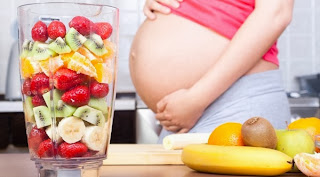From
the very start of pregnancy, mothers are subjected to various
traditional do’s and don’ts, some of which have been proven but many of
these beliefs do not have substantial scientific or medical evidence to
back them up. Despite this many women swear by them! Your loved ones may
bombard you with innumerable ‘tips’ in the excitement of your
pregnancy, but remember to practice only what you deem is right, in
accordance with what your medical practitioner advices.
General pregnancy myths
Myth: Women decide the sex of the baby.
FALSE. The male’s sperm is the deciding factor in determining the baby’s gender.
Myth: Your skin glows during pregnancy.
TRUE. The March of Dimes states
that blood flow increases during pregnancy, including within the
vessels just beneath the surface of the skin. In addition to this, the
hormones released during pregnancy causes the skin’s sebaceous glands to
release oily secretions called sebum which makes the skin look shiny.
The ‘glow’ seen in pregnant women may be the result of these two
factors.
Myth: Raising your arms above your head can cause the umbilical cord to strangle the baby.
FALSE. It is physically impossible to be able to control the movement of the umbilical cord by mere movements of your arms.
Myth: Pregnant women who carry low will have a baby boy; pregnancy acne means it will be a girl.
FALSE. Taller,
thinner women tend to carry higher; while shorter and fuller women
appear to carry lower. Furthermore, since abdominal muscles may be
looser in a second pregnancy, the pregnancy may appear to be lower.
Pregnancy acne on the other hand is simply the result of natural hormonal changes.
Myth: Pregnant women shouldn’t take baths.
FALSE. Pregnant
women shouldn’t take HOT baths as temperatures above 98 degrees is
unfavourable to the pregnancy. Taking a warm bath helps:
· Reduce uncomfortable swelling in arms and legs
· Prevent premature contractions
· Increase amniotic fluid
Nutrition related myths
Myth: You should be eating for two.
TRUE. It
is true that your nutrient needs increase, but energy requirements only
increase about 300 calories per day for the second and third trimester
of pregnancy, which is about a cup of reduced fat milk or yogurt and a
medium orange! Remember, research has shown that too much weight gain is
linked with complications at birth.
Myth: Childbirth will be easier with less weight gain.
TRUE. Your
baby will be at risk of a premature birth which often results in lung
and heart problems if you do not gain enough weight during your
pregnancy.
Myth: You only crave the foods your body needs.
FALSE. Cravings should not be the sole indicator of your nutritional needs as pregnant women can crave foods of any type.
- A pregnant mother’s cravings, regardless of how absurd, should be tended to, lest the child is born with a tendency to drool. Even cravings for foods considered unhealthy for mother or child should be catered to, but eaten in moderation. *Don’t worry, having food cravings while pregnant is completely normal - about two-thirds of pregnant women have them! If you are having food cravings, go ahead and indulge in them, but the key word here is moderation. Always bear in mind to keep your diet balanced and control giving in to your cravings if they are cutting out other necessary nutrients.
- Foods considered too ‘cold’ are thought to cause miscarriage in women. The Chinese believe that your womb is an incubator for your baby. The womb is to be kept warm (and not too hot) so that your baby can grow. ‘Cold’ foods include watermelon, wintermelon and water chestnut, to name a few.
- If a pregnant mother frequently eats food that is not properly cut or mashed, her child will have a careless disposition.
- Light coloured food and drinks (e.g. milk) will make your baby fair-skinned. If soy sauce or dark soy sauce is consumed in large quantities, your baby will have darker skin.
- Bananas should be avoided because the baby might ‘slip’ out
- Watermelons are to be avoided too, not only because it is considered a ‘cold’ food, it will also make your baby’s head big, resulting in a difficult delivery
- Pregnant women should avoid eating squid for fear of complications when giving birth such as the baby getting strangled by its umbilical cord (analogous to the squid’s tentacles). This was a popular superstition in the olden times.
- Foods that are believed to ‘poison’ the fetus, such as bananas and some types of fish should be avoided.
- Animals that have scales or rough skin should be avoided or the baby will develop skin problems.
- Desiring sour food stuffs indicates a female baby and desiring sweets indicates a male baby.
- If a pregnant woman drinks a lot of tea/coffee, the baby will be born with dark skin.
- Eating papaya, eggs and other ‘heaty’ foods may result in abortion






















